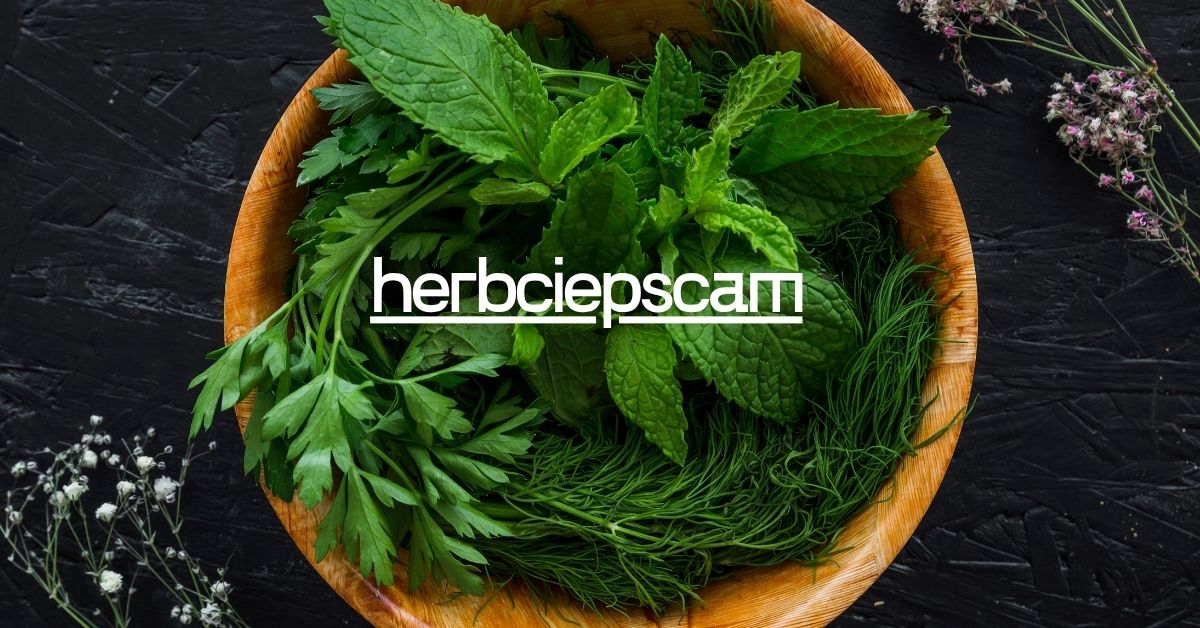Herbciepscam Alert: Stop Herbal Scams Before They Hit You
What Is Herbciepscam?
The term herbciepscam refers to fraudulent activities or deceptive tactics that target buyers of herbal or natural wellness products. These scams typically involve fake online herbal stores, scams offering miracle solutions, misleading product claims, counterfeit supplements, and websites created solely to steal customer information.
Herbciepscam schemes often look professional, making them hard to detect. Scammers take advantage of growing interest in natural remedies and the lack of strict regulations in the herbal supplement market. Their goal is usually to trick individuals into paying for products that never arrive, or worse, receive items that are unsafe or harmful.
Why Herbciepscam Scams Are Becoming More Common
To understand the rise of herbciepscam cases, it’s important to consider the environment that fuels them.
1. Growing Popularity of Herbal Medicine
Millions of people now prefer herbal remedies for immunity, digestion, stress relief, weight loss, and overall wellness. Scammers exploit this demand by creating fake herbal brands or misleading product listings.
2. Lack of Strict Regulation
The herbal product market is not as heavily regulated as pharmaceuticals. Many companies self-certify their claims, creating loopholes that scammers use to mislead customers.
3. Increasing Online Shopping
More people buy supplements online than from physical stores. This shift means consumers often rely on website reputations and digital reviews, which scammers can easily manipulate.
4. Health Vulnerabilities
People seeking herbal remedies are often dealing with health issues. This makes them more vulnerable to persuasive marketing and miracle-cure claims.
How Herbciepscam Scammers Operate
Scammers involved in herbciepscam operations use specific tactics to deceive buyers. Understanding these tactics can help consumers stay safe.
1. Fake Herbal Websites
Scammers build professional-looking websites with attractive designs, certification logos, and false testimonials. These websites usually:
- Sell herbal products at extremely low prices
- Offer “limited-time miracle cures”
- Provide no physical address or company information
- Request only online bank transfers
2. Misleading Social Media Ads
Social platforms have become a hotspot for herbciepscam activity. Fraudsters run ads claiming results like:
- “Lose 20kg in 14 days!”
- “Cure diabetes naturally in one week!”
- “Rebuild your immunity instantly!”
These claims are scientifically impossible but appealing.
3. Using Fake Reviews and Testimonials
Herbciepscam operators often buy fake reviews or use AI-generated testimonials. These reviews usually sound too positive or generic.
Read More: Eric Weinberger Wife: The Untold Story Of Love And Grace
4. Counterfeit Herbal Supplements
Some scammers ship low-quality or harmful products labeled as organic or lab-tested herbal supplements. These products may contain:
- Unknown chemicals
- Excessive fillers
- Toxic contaminants
5. Phishing Through Herbal Offers
Some herbciepscam pages are designed to steal personal information rather than sell products. Users entering their details become victims of identity theft.
Warning Signs of an Herbciepscam
To avoid becoming a victim, consumers must learn the red flags that indicate a scam.
1. Unrealistic Health Claims
Any herbal product claiming instant cures, permanent results, or immediate transformations is a strong red flag.
2. No Ingredient Transparency
Authentic herbal brands display full ingredients and scientific background. Herbciepscam sellers avoid clarity.
3. Very Low Prices
If a product seems too cheap compared to similar brands, it could be counterfeit or non-existent.
4. Poor Website Quality
Signs include:
- No About Us page
- No privacy policy
- Grammatical errors
- Stock images
5. No Customer Service
Scam pages usually have no real customer support or use fake chatbots.
6. Pressure Tactics
Herbciepscam sites love using:
- “Only 3 items left!”
- “Offer ends in 10 minutes!”
These tactics force quick decisions.
7. No Verifiable Contact Information
A legitimate herbal company will provide:
- A physical address
- A working phone number
- Registered business details
Scammers provide none of these.
How to Protect Yourself from Herbciepscam
Avoiding herbciepscam requires awareness and smart decision-making. Here are essential steps to stay safe.
1. Research the Brand
Before buying, always search:
- Brand name + reviews
- Company registration information
- Complaints on consumer forums
2. Avoid Miracle Claims
No herb can cure severe medical conditions instantly. Avoid products advertising unreal results.
3. Check Certifications
Look for genuine certifications such as:
- GMP (Good Manufacturing Practice)
- FDA facility registration (for US manufacturers)
- Organic certification
Fake herbciepscam stores often misuse certification logos that don’t link to real documents.
4. Buy Only from Trusted Platforms
Use reputable online stores such as:
- Amazon
- Walmart
- iHerb
- Official brand websites
These platforms have verification processes to reduce fraud.
5. Read Ingredients Carefully
Be cautious of products with:
- No ingredient list
- Unrecognizable substances
- Misleading scientific terms
6. Verify Customer Reviews
Check whether the reviews:
- Look too similar
- Were posted on the same date
- Contain generic repetitive phrases
Authentic reviews will be detailed and balanced.
7. Use Secure Payment Methods
Always use:
- Credit/debit cards
- PayPal
- Trusted payment gateways
Never pay through:
- Bank transfers
- Cryptocurrency
- Direct cash apps
These methods are commonly used in herbciepscam traps.
Read More : Stylish Pyntekvister For Home Decor
Real Risks of Falling for Herbciepscam
Becoming a victim of herbciepscam comes with several dangers.
1. Financial Loss
Victims often pay for products that never arrive or arrive in fake, unsafe form.
2. Health Risks
Counterfeit herbal products may:
- Cause allergic reactions
- Damage organs
- Interfere with medications
- Lead to long-term health problems
3. Identity Theft
Phishing-based herbciepscam pages can steal:
- Credit card numbers
- Personal information
- Home address details
4. Emotional Stress
Victims often feel embarrassed, frustrated, or fearful after being scammed.
How to Report Herbciepscam Activities
Reporting helps protect others and strengthens digital safety.
Here’s where you can report:
- Local consumer protection agencies
- Social media platforms hosting the scam ad
- Web hosting companies
- Online fraud reporting portals
- Cybercrime departments
By reporting herbciepscam activity, you contribute to a safer digital environment.
What Legitimate Herbal Products Look Like
To avoid herbciepscam traps, it helps to recognize what real herbal brands provide.
Reliable herbal products typically include:
- Verified ingredient lists
- Transparent branding
- Clear dosage instructions
- Laboratory testing results
- Customer reviews on independent websites
Legitimate brands never promise magic results and always focus on scientific accuracy.
Conclusion
The rise of natural health products has unfortunately made consumers more vulnerable to scams like the herbciepscam. Understanding how these scams operate, learning to spot warning signs, and knowing how to verify a legitimate herbal brand can protect you from financial losses, health risks, and identity theft.
Herbal wellness is valuable—but only when approached with caution and proper research. By making informed decisions and avoiding suspicious platforms, you can enjoy the benefits of herbal products safely and responsibly.







